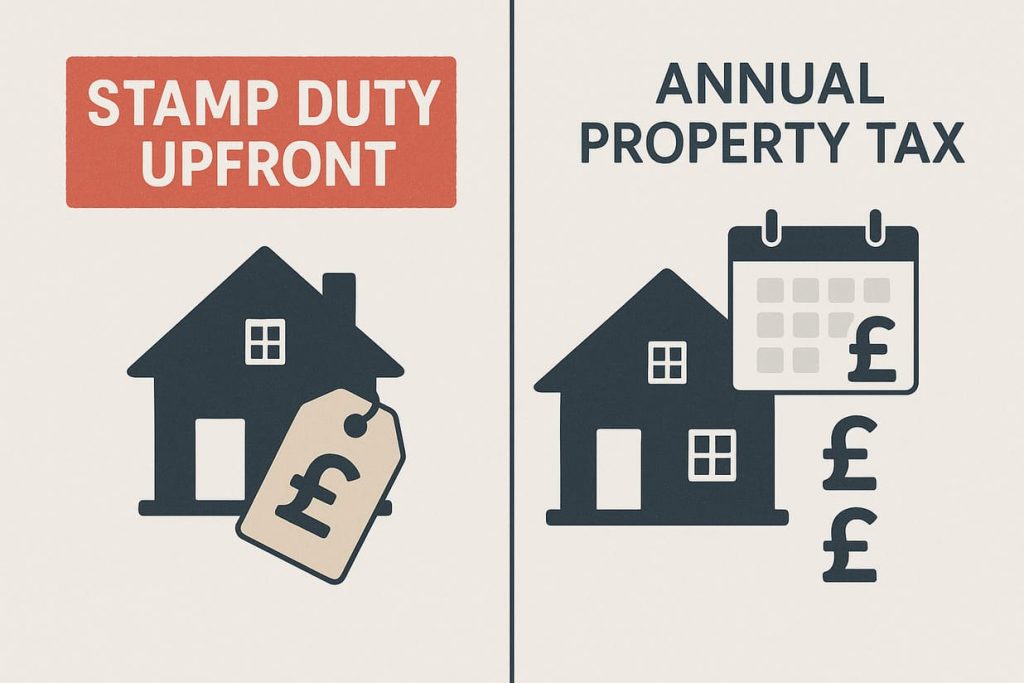UK Property Market 2025: What Potential Tax Reforms Mean for Investors
The UK property market has rarely faced so much speculation in such a short time. Investors are holding their breath as the government hints at sweeping tax reforms that could reshape how property is bought, held, and sold. For those putting capital into UK property, understanding what’s on the table – and how to prepare – is essential.
What’s Being Discussed?
The government has been under pressure to make housing fairer and generate more revenue. Several ideas are in circulation ahead of the Autumn/Winter Budget:
None of these reforms are confirmed, but the uncertainty is already influencing investor behaviour.
Would Investors Benefit from Scrapped Stamp Duty on Cheaper Homes?
This is one of the biggest unanswered questions.
Until official details are announced, it is unclear whether investors purchasing lower-value properties would directly benefit. For now, investors should assume that the outcome could go either way.
What Counts as “Lower Value” vs “Higher Value”?
At this stage, the government has not defined what would qualify as “lower” or “higher” value in the context of new reforms. That makes it difficult for investors to plan with certainty.
However, investors can use current benchmarks as useful guides:
Regional variation is also key: in London, a £600,000 flat may be considered entry-level, whereas in the North East it would firmly fall into the high-value category.
Why Does This Matter to Investors?
Investors often model acquisitions around current tax structures. A shift from upfront stamp duty to annual holding taxes could significantly change yield calculations.
If CGT on main homes is introduced, we may see reduced demand at the higher end of the market. That could soften prices and slow capital appreciation.
An annual property tax would increase holding costs, particularly for landlords with multiple assets. This could squeeze margins unless rents rise proportionally.
Speculation alone is creating hesitancy. Sellers are withdrawing listings, and buyers are pausing to see how the dust settles. For investors, this creates both risk and opportunity.
Short-Term Outlook
How Investors Can Prepare
Model scenarios with higher annual taxes or reduced capital growth. Does the deal still work if these changes come in?
Regions outside London and the South East may prove more resilient if high-value homes are targeted by tax reform.
For some investors, holding property in a company structure may mitigate certain tax changes – though this requires tailored professional advice.
Having liquid capital and a clear strategy will allow you to move quickly if new opportunities arise once the Budget is confirmed.
Final Thoughts
The UK property market has always adapted to change, and investors who stay informed and flexible tend to come out ahead. While the details of tax reform remain uncertain, the direction of travel is clear: the government wants to rebalance who pays, and how much.
For investors, this means preparing for higher holding costs and potentially slower capital growth – but also recognising that times of uncertainty often bring the best buying opportunities.
We’ll continue to monitor developments and provide updates as more details emerge from the government. If you’re considering your next investment, now is the time to review your strategy and ensure it’s resilient to whatever the Budget brings.

